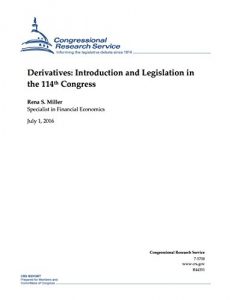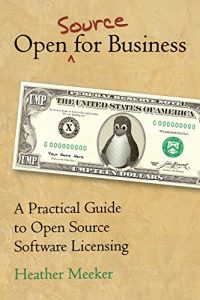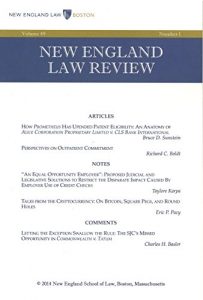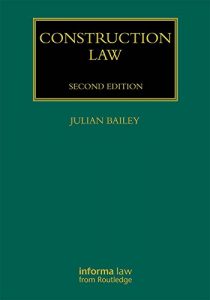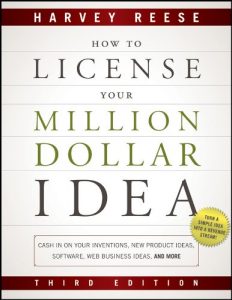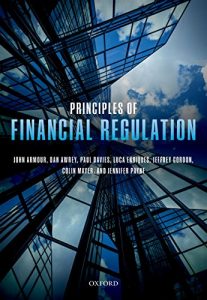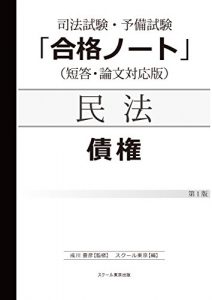I 99eBooks è una directory di eBook. Cerchiamo e classificato intorno alle eBooks Web per te!
Tutti i diritti riservati. I libri e libri elettronici sono di proprietà dei rispettivi proprietari.
Derivatives: Introduction and Legislation in the 114th Congress (English Edition)
Derivatives are financial instruments that come in several different forms, including futures, options, and swaps. A derivative is a contract that derives its value from some underlying asset at a designated point in time. The derivative may be tied to a physical commodity, a stock index, an interest rate, or some other asset.
Derivatives played a role in the 2008 financial crisis in a variety of ways. The unmonitored buildup of derivatives positions in the largely unregulated “over-the-counter” (OTC) market led many major financial institutions into large financial losses. Possibly the best-known example of such losses was the insurance giant American International Group (AIG), whose massive losses from selling credit-default swaps ultimately contributed to the need for government assistance. OTC derivatives, prior to the Dodd-Frank Wall Street Reform and Consumer Protection Act (Dodd-Frank Act; P.L. 111-203), were traded bilaterally rather than cleared through a clearinghouse, and no reporting trail existed, which created uncertainty during the crisis over the web of exposures to large derivatives losses.
The Dodd-Frank Act aimed to address these policy concerns by bringing the swaps market into a regulatory framework based on that of the futures markets, which had long been regulated by the Commodity Futures Trading Commission (CFTC). Security-based swaps tied to equities or narrow-based credit indexes were placed under the jurisdiction of the Securities and Exchange Commission (SEC) within a similar framework.
Broadly, Dodd-Frank included five major reforms. It required the
1. clearing of certain swaps through a clearinghouse, entailing the posting of margin, or cash, to cover accumulating losses;
2. trading of certain swaps on an exchange or swap execution facility (an electronic trading platform), with the aim of increasing price transparency;
3. reporting of all swaps transactions to a swaps data repository (SDR) to create an audit trail and more market data for regulators;
4. registration of swap dealers and major swap participants, subjecting them to regulatory oversight; and
5. establishment of margin and capital requirements by regulators for swaps that remain uncleared. Parallel provisions were enacted for security-based swaps under the SEC.
In the 114th Congress, several bills have been introduced, and two have been enacted as part of other legislation, impacting various aspects of swaps regulation largely stemming from Dodd- Frank. One of the provisions, originally in H.R. 1847 but enacted in P.L. 114-94/H.R. 22, removed a requirement added in Dodd-Frank that foreign regulators indemnify a U.S.-based SDR and the CFTC for any expenses arising from litigation related to a request for market data (with a parallel SEC provision). The other provision, originally in H.R. 1317 but enacted in P.L. 114- 113/H.R. 2029, created an exception for certain corporate affiliates of nonfinancial companies, dubbed “centralized treasury units,” to the clearing and exchange-trading requirements.
The House has passed legislation, H.R. 2289, that would reauthorize appropriations to carry out the Commodity Exchange Act (CEA; 7 U.S.C. §§1 et seq.)—a process that historically has recurred every five years. The Senate Committee on Agriculture, Nutrition and Forestry marked up and ordered to be reported S. 2917 which would also reauthorize such appropriations, as well as making other changes to the CEA. S. 2917 and H.R. 2289 would each modify the definition of who is a financial entity—relevant for determining who must clear their swaps—but the bills do so in different ways. H.R. 2289 and S. 2917 would—in substantially identical ways—broaden the definition of bona fide hedging to allow anticipated, as well as current, risks to be hedged, likely increasing the number of swaps qualifying as hedges for position limits, registration requirements, and other purposes. [...]
Derivatives played a role in the 2008 financial crisis in a variety of ways. The unmonitored buildup of derivatives positions in the largely unregulated “over-the-counter” (OTC) market led many major financial institutions into large financial losses. Possibly the best-known example of such losses was the insurance giant American International Group (AIG), whose massive losses from selling credit-default swaps ultimately contributed to the need for government assistance. OTC derivatives, prior to the Dodd-Frank Wall Street Reform and Consumer Protection Act (Dodd-Frank Act; P.L. 111-203), were traded bilaterally rather than cleared through a clearinghouse, and no reporting trail existed, which created uncertainty during the crisis over the web of exposures to large derivatives losses.
The Dodd-Frank Act aimed to address these policy concerns by bringing the swaps market into a regulatory framework based on that of the futures markets, which had long been regulated by the Commodity Futures Trading Commission (CFTC). Security-based swaps tied to equities or narrow-based credit indexes were placed under the jurisdiction of the Securities and Exchange Commission (SEC) within a similar framework.
Broadly, Dodd-Frank included five major reforms. It required the
1. clearing of certain swaps through a clearinghouse, entailing the posting of margin, or cash, to cover accumulating losses;
2. trading of certain swaps on an exchange or swap execution facility (an electronic trading platform), with the aim of increasing price transparency;
3. reporting of all swaps transactions to a swaps data repository (SDR) to create an audit trail and more market data for regulators;
4. registration of swap dealers and major swap participants, subjecting them to regulatory oversight; and
5. establishment of margin and capital requirements by regulators for swaps that remain uncleared. Parallel provisions were enacted for security-based swaps under the SEC.
In the 114th Congress, several bills have been introduced, and two have been enacted as part of other legislation, impacting various aspects of swaps regulation largely stemming from Dodd- Frank. One of the provisions, originally in H.R. 1847 but enacted in P.L. 114-94/H.R. 22, removed a requirement added in Dodd-Frank that foreign regulators indemnify a U.S.-based SDR and the CFTC for any expenses arising from litigation related to a request for market data (with a parallel SEC provision). The other provision, originally in H.R. 1317 but enacted in P.L. 114- 113/H.R. 2029, created an exception for certain corporate affiliates of nonfinancial companies, dubbed “centralized treasury units,” to the clearing and exchange-trading requirements.
The House has passed legislation, H.R. 2289, that would reauthorize appropriations to carry out the Commodity Exchange Act (CEA; 7 U.S.C. §§1 et seq.)—a process that historically has recurred every five years. The Senate Committee on Agriculture, Nutrition and Forestry marked up and ordered to be reported S. 2917 which would also reauthorize such appropriations, as well as making other changes to the CEA. S. 2917 and H.R. 2289 would each modify the definition of who is a financial entity—relevant for determining who must clear their swaps—but the bills do so in different ways. H.R. 2289 and S. 2917 would—in substantially identical ways—broaden the definition of bona fide hedging to allow anticipated, as well as current, risks to be hedged, likely increasing the number of swaps qualifying as hedges for position limits, registration requirements, and other purposes. [...]
